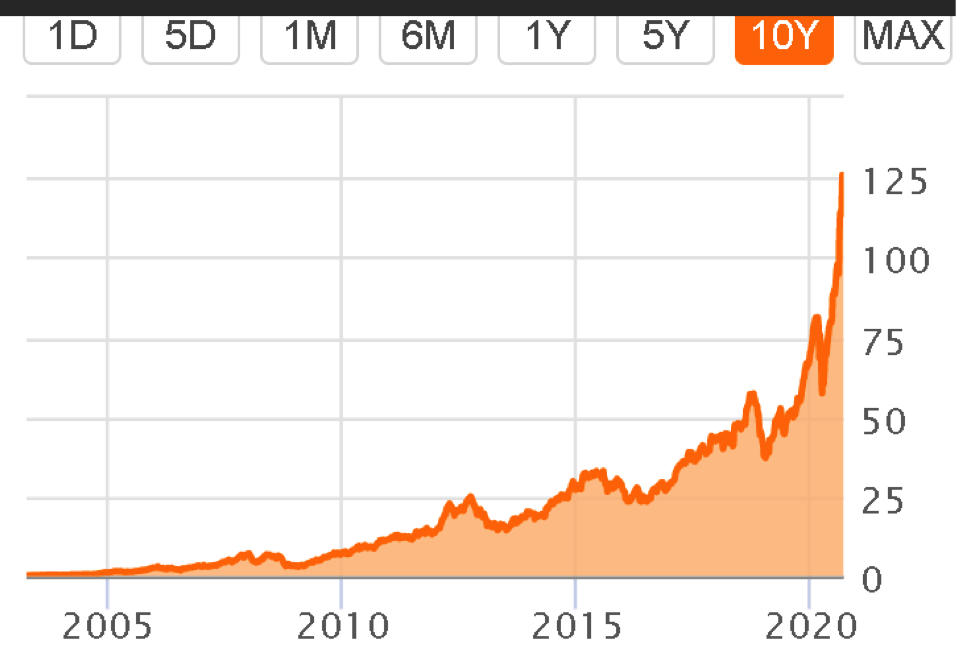I thought it might be helpful to drop a note to you. The company announced it was “splitting” its shares and issuing three new shares to common shareholders of record, while adjusting the price accordingly. This took place on August 31, 2020.
What this means is that for every share you owned on Friday August 28, 2020, at opening of business Monday, August 31 you now own 4 shares of Apple. Likewise, the price per share will be one quarter what it was previously. The total value of your holding does not change.
So, with the stock closing at $499.24 on the 28th, its split adjusted price (divide by four) would have been $124.81. On Monday the 31st the stock began trading quoted as $127.58 and closed at $130.25.
Over the 46 years of my career, a stock split almost always elicits a panicked phone call from a client or two who, upon reading the new share price in a publication, fears that their investment has plummeted in value. It is important to remember that while the price per share may have dropped, this is offset by your receiving more shares. On balance the value of your holding is the same.
Since we’re on the subject of Apple, many of you saw this stock appear in your account in early 2014.

At the time it was purchased in the mistaken belief that as a “mature” company, its best growth days were behind, and yet I believed there would be a regular increase in dividends and stock buybacks in coming years. In other words, this would become something like the old American Telephone and Telegraph, a little boring but a great income stock. I was wrong, but in a good way! Six years on, the company has dazzled investors by continually innovating and evolving under Tim Cook, who succeeded Steve Jobs.
Today, the company trades at its highest multiple in decades and having risen vertically in price following the Covid Panic, appears stretched to me. However, the Apple is financially sound, is well managed and has a growing source of repeat revenue in its service offerings such as streaming services iTunes, ApplePay and Apple + TV. Key metrics such as return on equity are greater than most of its peers in the popular “FAANG” group. While it is certainly possible there will be a correction in the stock, for long term investors, this appears to be a “keeper”. Further, as a percentage of your total managed holdings, Apple represents modest exposure.
